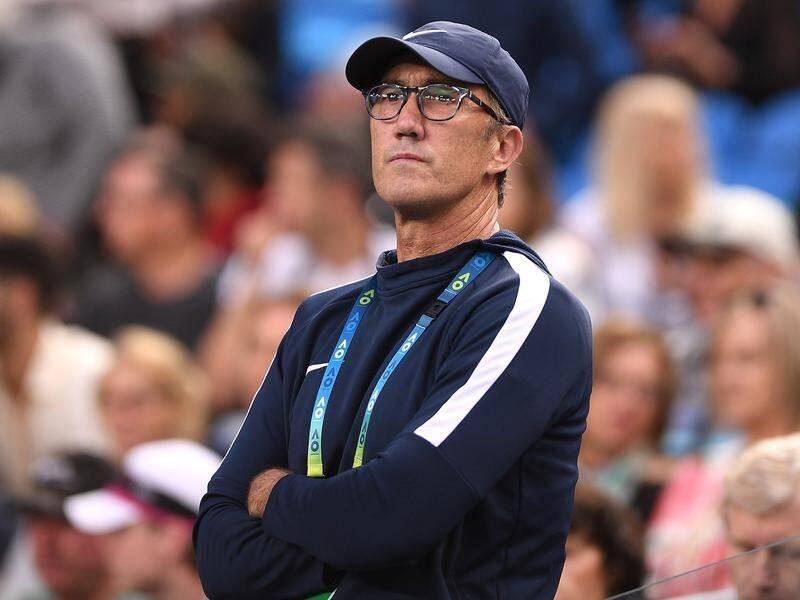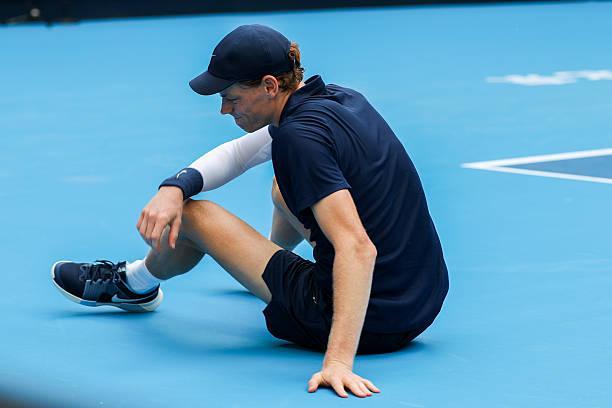In a stunning turn of events that has rocked the tennis world, Jannik Sinner officially announced his retirement following the conclusion of the 2025 Shanghai Masters. The news came just 10 minutes ago, and fans, analysts, and fellow players alike are still reeling. More surprising yet was the revelation from his long-time coach, Darren Cahill, who has now disclosed the real reason behind Sinner’s abrupt decision — a reason so personal and poignant that it has left millions heartbroken.
A Career Cut Short at the Peak
Sinner’s retirement announcement came at a moment of high drama. During the Shanghai Masters, he was forced to retire mid-match due to crippling thigh cramps in brutally humid conditions. Reuters+1 What had appeared to be a physical collapse soon transformed into a career-ending decision. At only 23, Sinner had already claimed multiple Grand Slam titles and ascended to world No. 1. Wikipedia+1

Given his youth and continuing dominance, few saw this coming—yet “burnout,” “mental fatigue,” or “undisclosed health issues” floated early as possible underlying causes. The public, naturally, demanded more clarity.
Cahill Speaks Out: Family and Health at the Core
Darren Cahill, Sinner’s coach since 2022 and a respected veteran in the sport, broke the silence in an emotional statement. According to Cahill, Sinner’s decision to step away was not driven by a single match or injury but by deep, personal strain accumulated over years of high-stakes competition.
Cahill revealed that Sinner’s mental and emotional health had become his top priority. The relentless travel, pressure to maintain peak performance, and constant media scrutiny took a toll that physical rest alone could no longer heal. Cahill admitted he had earlier planned to retire after the 2025 season himself, in order to reclaim time with family and escape the relentless touring cycle. Reuters+2The Playoffs+2

Yet, Cahill confessed, he had a change of heart — he wished to remain in Sinner’s inner circle for support. But in the end, it was clear that Sinner needed more: a break from the game itself.
Legacy Overshadowed by Farewell
For many, Sinner’s retirement feels like the end of a golden era just as it began. He leaves behind:
-
Multiple Grand Slam titles
-
A stint at world No. 1
-
A reputation for composure, innovation, and relentlessness on court
Cahill, meanwhile, cements his legacy too: not just as a master tactician, but as a human being who insisted on honesty and vulnerability in an unforgiving sport.

What Happens Next?
-
Support & recovery: Sinner is expected to take indefinite time to rest, recharge, and evaluate his path forward.
-
Coach’s role: Cahill may stay on in a limited advisory or emotional support role, but without the travel burden.
-
Tennis world reaction: Murmurs among players and pundits are already speculating about the toll elite tennis takes on mental health.
-
Future comeback possibility: Though his retirement sounds definitive, very few athletes rule out a return entirely — especially one as gifted as Sinner.
The shockwaves from this announcement will be felt for months—perhaps years—to come. Tennis has lost one of its brightest stars just as he seemed to be peaking. And behind the headlines, a young man chose sanity, well-being, and personal peace over glory. Perhaps that is the most powerful victory of all.